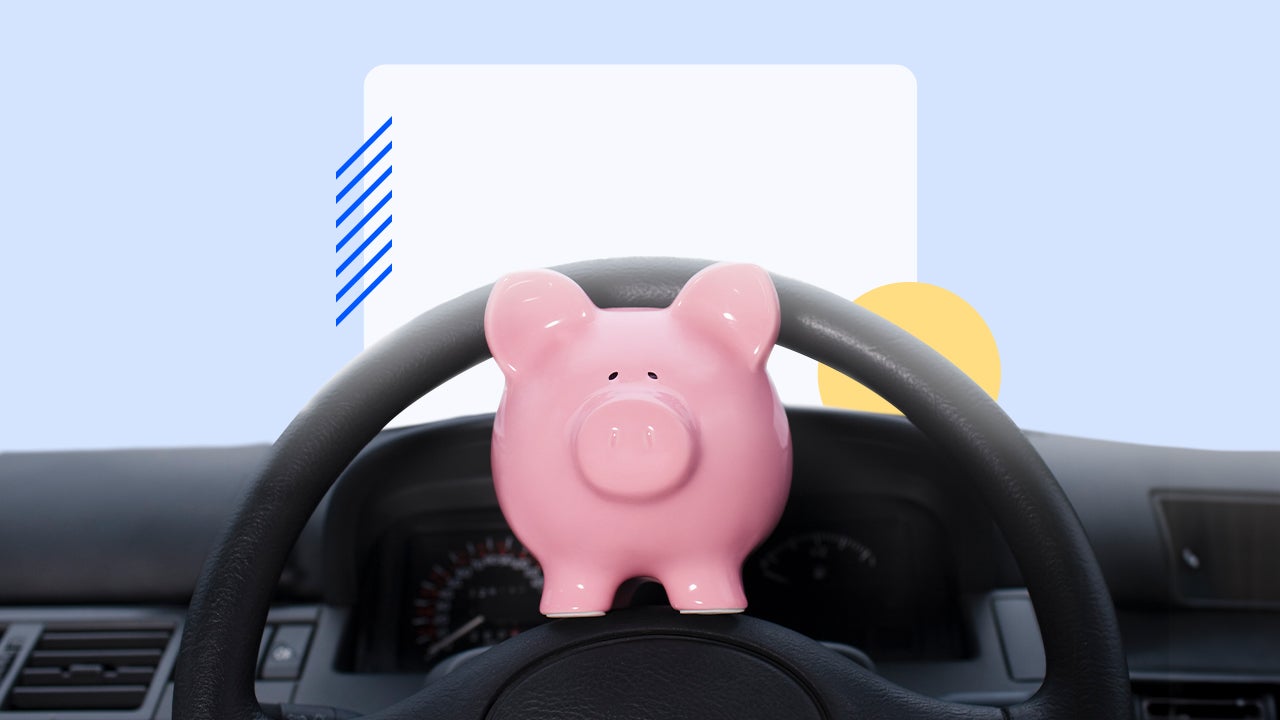A graduate’s guide to buying a car

Key takeaways
- Consider your lifestyle when deciding which vehicle is best for you after graduation. Factor in your daily commute, budget, preferred tech and necessary safety features.
- When finding what vehicle you can afford, consider all the costs, including potential trips to the gas station and mechanic.
- Getting preapproved for an auto loan may give you an advantage during price and financing negotiations at the dealership.
Buying a vehicle can be one of the most expensive purchases you make in the first years of adulthood. Knowing how to buy a car — and what you should take care of before heading to the dealership — could save you thousands of dollars on your purchase. Consider the affordability, size, fuel efficiency and safety features so you can find the right car for your budget. And after, compare at least three lenders to ensure you’re getting the most competitive rate available to you.
Factors to consider before buying a car
The thought of purchasing your own car is exciting, but be careful not to get sidetracked by a flashy brand name. You could end up with a vehicle that fits your style but isn’t practical. Instead, consider your budget and the nonnegotiable features you want in a car before committing to a specific make and model.
Affordability
To determine how much car you can afford, look beyond monthly payments. Consider factors like fuel costs and auto insurance premiums as well as maintenance and repair costs. In 2024, the average cost to own and operate a car was just under $12,300, according to AAA.
Annual registration renewal expenses, which generally range from under $20 to a little over $200 per year, are also a factor to keep in mind. Some states assess a flat fee, while others use your vehicle’s age, fuel efficiency or weight to calculate registration fees.
Finally, be sure to consider the resale value of your vehicle. The last thing you want is to end up upside down on your loan, which is when you owe more on your car than it is worth. Look for vehicles that retain their value over time so you can make the most of your budget.
You can use an auto loan calculator to estimate how much your monthly payment will be and what you will pay overall in interest.
Commute, size and fuel efficiency
Consider the primary use of your vehicle when deciding how it will fit into your lifestyle. If your job requires a long commute, you may want to narrow your search down to cars with good fuel economy. This can help cut down on gas costs and save you a little extra money each month.
With prices averaging $3.07 in January 2025, according to AAA, the mpg a vehicle gets is especially important to maximize your paycheck. Even without a long commute, saving money on gas can be done by driving the speed limit, joining a rewards program and using apps to find cheap gas.
The size of your vehicle can also impact gas costs, as well as day-to-day practicality. Post-grad housing often comes with limited parking, which can make a compact vehicle a perfect option. If you intend to tow or transport items, you will likely need something bigger, like a crossover or pickup truck.
Safety features
As a young driver, keeping yourself and your passengers safe should be a top priority. Finding a safe vehicle doesn’t always have to cost more money, either. When shopping for your first car out of college, check for safety ratings and recalls to find the most reliable car.
Technology like lane assist, automatic emergency brakes and forward collision warnings are all designed to enhance vehicle security and reduce the risk of accidents on the road. These may cost more, but they could be worth the expense for som.
Finally, if you plan on buying used, be sure to request a copy of the vehicle history report. It includes maintenance records and discloses if the car has been involved in accidents, which can permanently impact the durability and safety of a vehicle.
Another aspect of staying safe — and on budget — is securing the right insurance to protect yourself from future accidents.
Tech and connectivity
Heated seats, keyless start, infotainment systems and enhanced camera systems are all extra features that make being on the road a little more pleasant. However, these features may come with a high price tag.
The more features a vehicle has, either included with a trim or as add-ons offered by the manufacturer, the more expensive it will be. If tech and safety features are a priority, be sure to account for this extra cost in your budget.
Decide between new and used
There is a lot to love about a new car. It’s shiny, in tip-top shape and smells good. But the reality is that some used vehicles are just as reliable. Plus, you could purchase an extended warranty for around $1,500 and have added peace of mind knowing you’re protected in the event of a major mechanical breakdown.
Consider the following when deciding between a new and used ride:
- New cars come with a manufacturer’s warranty. This coverage could save you a lot of money if your car breaks down and requires major repairs in the first few years of ownership.
- New cars often have all the latest technology. However, you may find a slightly used car with your desired features.
- New cars may have special discounts. A few auto manufacturers offer discounts to new college grads. However, you will need to meet strict requirements to qualify.
- Some used cars can have low mileage. So, you shouldn’t have many mechanical issues for some time, maintenance costs will likely be lower and you’ll get a better deal.
- Some used cars are certified pre-owned (CPO). CPO cars are given the manufacturer’s seal of approval after being brought up to a set standard mechanically and have a limited factory warranty.
- Used cars are often less expensive. Not only will you avoid the steep depreciation that comes with buying a new car, but you may pay less overall thanks to a lower purchase price.
Patience is on your side. Waiting until you have more money in the bank to afford a large down payment on a reliable ride will let you borrow less money and avoid future problems.
Decide between buying and leasing
There is no one-size-fits-all answer when deciding between buying or leasing a vehicle. Leasing tends to cost less on a month-to-month basis, while buying carries fewer restrictions.
Consider the benefits of both options before deciding:
- Lease payments on newer cars are typically more affordable. If your eyes are set on a particular vehicle that is a bit pricey, you may be able to afford the monthly payments if you get a lease.
- You’ll get a manufacturer’s warranty when you lease a new car. It typically covers you for up to 36,000 miles or three years, so you won’t have to worry about spending a fortune on repairs if a mechanical issue comes up.
- There are no mileage restrictions if you buy a car. But if you decide to lease, you will be limited to 10,000 and 15,000 miles per year or risk racking up excessive mileage fees. They can cost you between 10 cents and 25 cents per mile or more, depending on the lease agreement’s terms.
- You’ll own the car once the loan is paid in full. Lease agreements operate a bit differently, in that you’ll have to return the vehicle to the dealer when the lease ends unless you opt to buy it out.
Compare financing options
Most dealerships offer in-house financing, but that is not your only option. Banks, credit unions and online lenders can also help you find the lowest auto loan rates.
When you’re ready to get started, apply for preapproved. This can help you find a loan that works for both your budget and how much you know you’re able to spend when shopping. Preapproval may also give you more leverage when negotiating the purchase price. The deal won’t depend on your ability to secure financing through the dealership, and you can behave like a cash buyer.
Bottom line
Ultimately, buying a car in college or just after is one of the biggest purchases you will make in young adulthood. To ensure you get the best deal, do your research to find a ride that complements both your lifestyle and your budget. When you’re ready to start shopping, get preapproved for financing before you visit any dealerships and weigh the benefits of buying versus leasing to decide which option is best.






